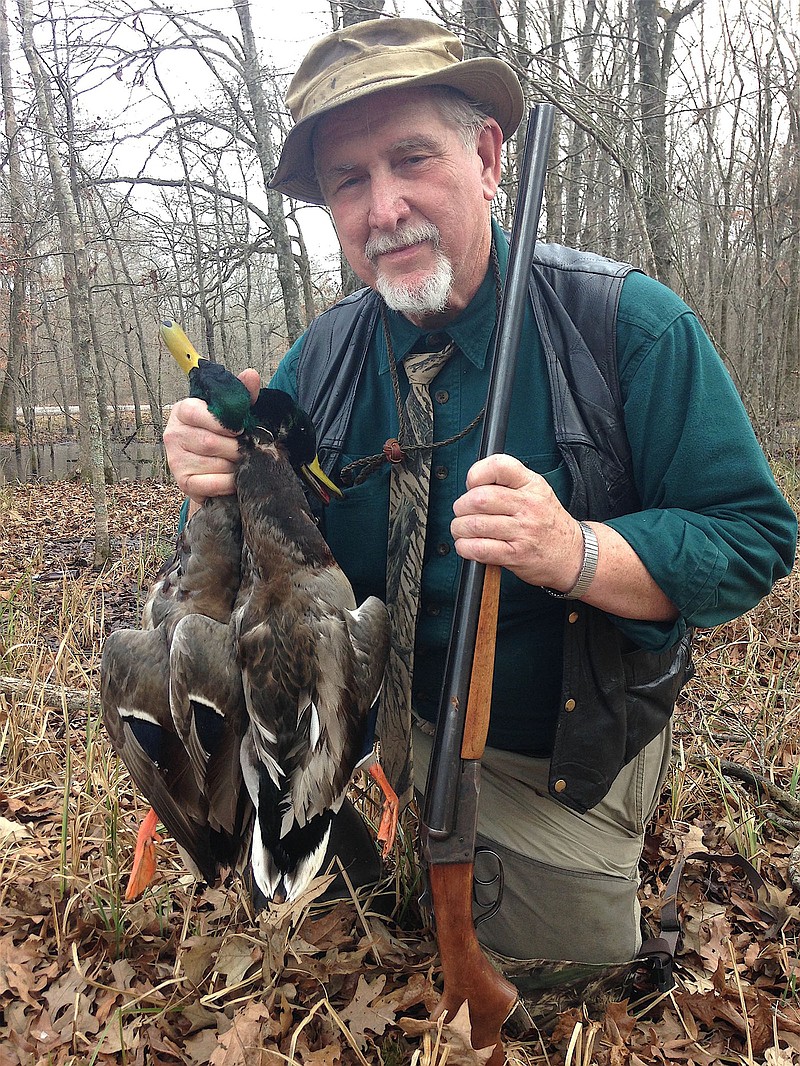With two weeks left in duck season and with hunting conditions at their peak, now is a good time to experience the thrill of an Arkansas duck hunt.
Even though most of the 60-day season has passed, there is still enough time for a beginner to dip their toe in the water and see if duck hunting is a sport to pursue further. Arkansas has a lot of places to give it a try, and it's a lot easier than you might believe.
Instead of offering a menu of places to go, we believe it is more helpful to offer some tips on basic waterfowling techniques that you can apply to any location.
Required items for do-it-yourself waterfowling include warm clothes and waders. Clothing need not be dedicated waterfowling gear with the latest camouflage pattern. However, it should be earth tone, brown, olive or even black. The fabric should be entirely matte, with no sheen.
Invest in a pair of high-quality undergarments. An insulated top and bottom is essential for standing in water, which adds an extra chill to the air above the water. We recommend a T-shirt over the thermal base layer, topped with a drab fleece pullover and a jacket or parka, depending on the temperature. Ideally, the top layer is waterproof.
A drab cap, with no bright or shiny embroidery, completes the ensemble.
If you decide you don't like duck hunting, the attire is serviceable for a lot of other outdoor activities.
You will probably have to buy waders because borrowing waders is dicey. Unless you know a duck hunter with your build and shoe size, borrowed waders will not fit. Few things are more uncomfortable than spending a few hours in waders that are too small. If they are slightly oversize, you can compensate by wearing an extra pair of thick socks.
Inexpensive waders are available at many sporting goods stores. Cheap waders do not have insulated boots, and they aren't durable, but those are not important attributes for beginners. You just want to get in as cheaply as possible to see if you like it.
On the other hand, you will like it more if you are comfortable. If you are getting up early enough to make a long drive to a green tree reservoir, you have already crossed the first threshold of commitment. Deepen your commitment by investing in high-quality waders.
You can buy a cheap duck call from any sporting goods store, and you can learn basic duck calling techniques from YouTube. You can borrow a shotgun, or you can buy a serviceable model for less than $500. Again, if duck hunting turns out not to be for you, you can hunt turkeys and other game with your shotgun.
Now that you are properly equipped, find a public duck hunting area near your home. You can get a functional map of any state-owned WMA from the Arkansas Game and Fish Commission that will help you get in and out. Parking areas are identified on the maps, and those are the best places for a beginner to start.
Many access points require a boat to enter prime duck hunting areas. A boat gives you a lot more options. However, we strongly recommend covering your boat with burlap so that it won't flare ducks. A canoe or sit-on-top kayak will suffice if you can reach an area shallow enough to exit and re-enter the craft without overturning it. This is extremely difficult and potentially hazardous when wearing bulky, heavy waders. Again, you will need a covering for the craft.
We strongly recommend carrying a GPS unit and a compass. Mark your vehicle as a waypoint and use your compass to ensure a relatively straight heading into the woods.
Duck hunters like to be in position at first light. However, we recommend arriving after daybreak. Hang out for a while at the parking area and listen for shooting. That will tell you where the hunters are concentrated. It does not necessarily mean that is where the ducks are concentrated. Most likely it means that hunters, being creatures of habit, are simply in places they go day after day.
We prefer to go away from the shooting, as do ducks. As long as there is water, ducks will be near.
When you find a suitable open space, you will have found a suitable hunting space. If you arrive late, you will almost certainly flush some ducks off the water. Ducks that don't flush will move away from you.
You do not have to be skillful caller to call ducks into a hole. At this point in the season, ducks are mostly looking for a place where hunters are not. A soft chuckle is about all it takes to get their attention. Stand against a tree, splash some water with your foot and keep your face to the water. You don't have to look up to see ducks. You can see their reflections on the water as they fly past. Small groups will land in your hole, and others will at least dip below the treetops for a look.
Decoys can help, but they are not necessary. I don't carry more than six.
Ducks in areas such as Bayou Meto Wildlife Management Area are aware that shooting does not occur after noon, when hunters must be off the water. Most of the shooting stops long before. Ducks start working the woods pretty hard late in the morning after most of the hunters have departed. This is a great time to hunt as long as you can be off the water by noon.
Duck hunting is not hard, and it is not complicated. Once you get the flavor of it in these waning days, you can take the next steps to full immersion next season.
